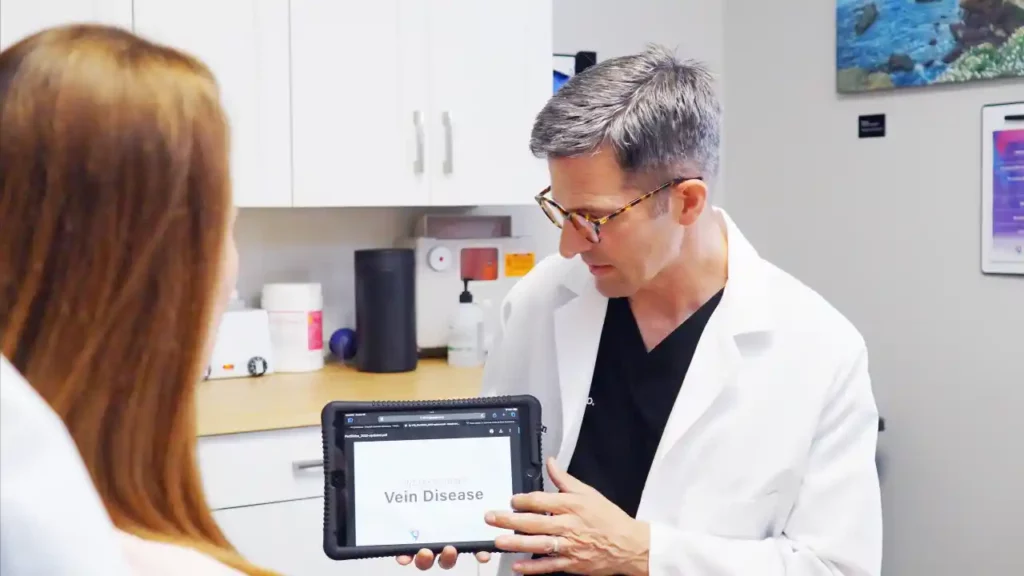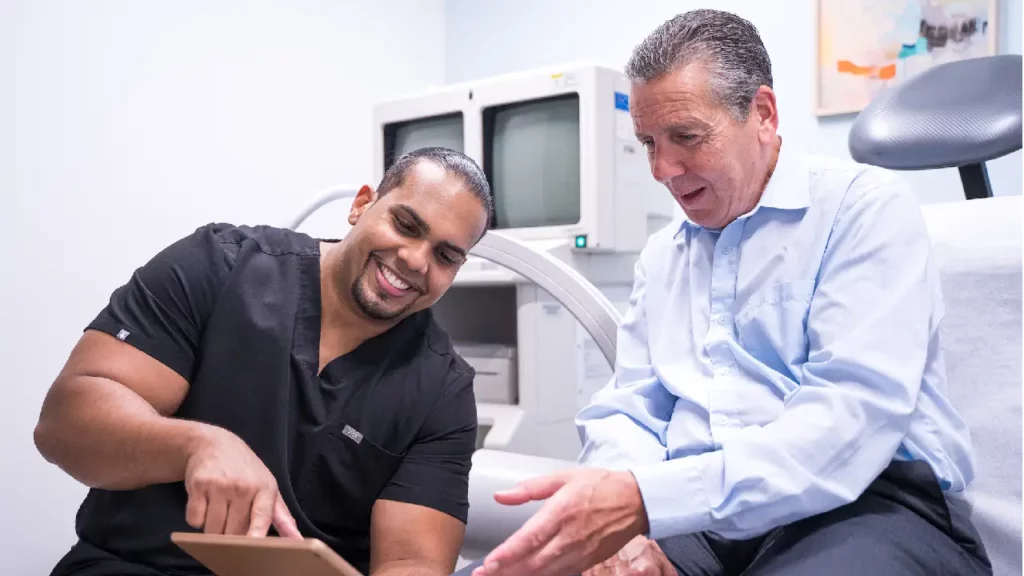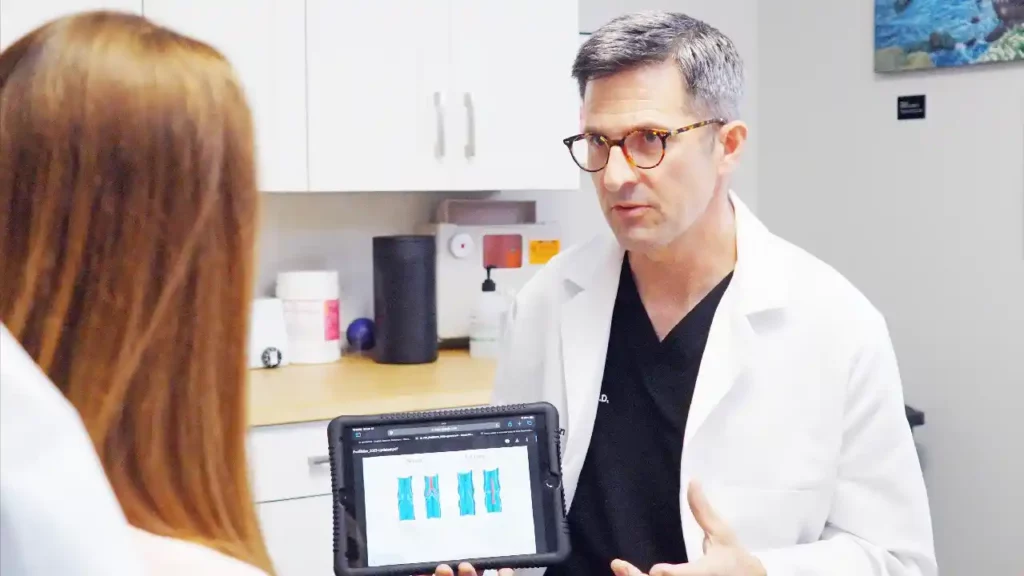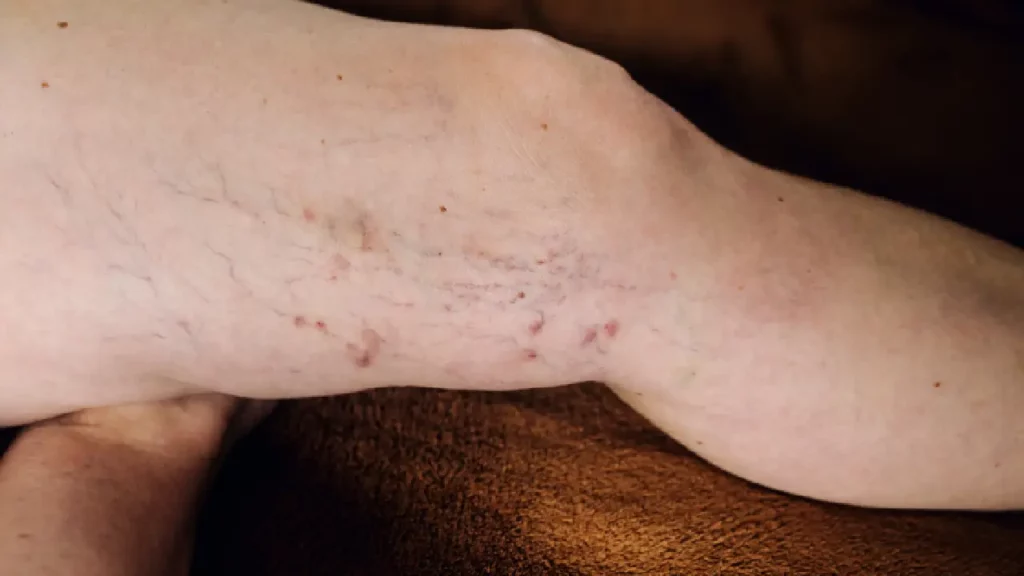At Vein Doctor for Women, we understand that vein health is a crucial aspect of your overall well-being. One often overlooked factor in maintaining healthy veins is weight management. Excess weight can put additional pressure on your veins, leading to various vein-related issues like varicose veins and chronic venous insufficiency. In this guide, we explore the role of weight management in vein health and offer effective strategies for reducing pressure on your veins.
The Link Between Weight and Vein Health
Your veins are responsible for carrying blood back to your heart, working against gravity. Excess weight places additional pressure on your veins, particularly those in your legs. This pressure can weaken the valves in your veins, making it harder for them to push blood back up to your heart. When these valves don’t function properly, blood can pool in your veins, leading to varicose veins and chronic venous insufficiency.
Chronic venous insufficiency occurs when your veins struggle to send blood from your limbs back to your heart. The increased pressure from excess body weight can exacerbate this condition, causing symptoms such as swelling, pain, and the development of varicose veins. Managing your weight helps reduce the pressure on your veins, which can prevent or alleviate vein-related problems. Weight loss improves circulation, reduces inflammation, and strengthens the overall structure of your veins, making it easier for your veins to function effectively.
Strategy 1: Adopting a Balanced Diet
One of the most effective ways to manage your weight and support vein health is by adopting a balanced diet. Focus on consuming a variety of nutrient-dense foods that promote overall health and help maintain a healthy weight. These are the key components of a balanced diet:
- Fruits and Vegetables: Rich in vitamins, minerals, and antioxidants, fruits and vegetables support vein health by reducing inflammation and strengthening vein walls.
- Lean Proteins: Incorporate lean proteins such as chicken, fish, beans, and legumes. Protein helps build and repair tissues, including those in your veins.
- Whole Grains: Whole grains like oats, quinoa, and brown rice provide essential fiber, which can help regulate weight and reduce pressure on veins.
- Healthy Fats: Include sources of healthy fats, such as avocados, nuts, seeds, and olive oil. These fats support overall cardiovascular health and can help maintain a healthy weight.
Strategy 2: Regular Physical Activity
Regular physical activity is another cornerstone of weight management and vein health. Exercise helps improve circulation, strengthen your muscles, and reduce excess weight, all of which contribute to healthier veins. Types of beneficial exercise include:
- Cardiovascular Exercise: Activities like walking, jogging, swimming, and cycling improve blood flow and promote cardiovascular health.
- Strength Training: Building muscle through weight lifting or bodyweight exercises can help support your veins and improve overall circulation.
- Flexibility and Balance Exercises: Yoga and Pilates can enhance flexibility and balance, reducing the risk of vein-related issues.
Strategy 3: Staying Hydrated
Hydration plays a vital role in healthy veins. Dehydration can cause blood to thicken, making it harder for your veins to transport blood back to your heart. Aim to drink plenty of water throughout the day to keep your blood flowing smoothly and reduce strain on your veins. These are some tips to stay hydrated:
- Carry a water bottle with you and sip throughout the day.
- Eat water-rich foods such as cucumbers, watermelon, and oranges.
- Limit dehydrating beverages like caffeinated drinks and alcohol.
Strategy 4: Maintaining a Healthy Weight
While diet and exercise are critical components of weight management, there are additional strategies you can employ to maintain a healthy weight and support vein health. Implement these behavioral changes to manage your weight:
- Set Realistic Goals: Aim for gradual, sustainable weight loss rather than quick fixes. Small, consistent changes are more likely to lead to long-term success.
- Monitor Your Progress: Track your weight, food intake, and physical activity to stay accountable and make necessary adjustments.
- Seek Support: Join a weight loss group or work with a healthcare provider or nutritionist for guidance and encouragement.
Strategy 5: Considering Medical Options
For some individuals, lifestyle changes alone may not be enough to achieve weight loss. In such cases, medications can be considered. One potential option is Ozempic (semaglutide), a medication that can help with weight loss by regulating appetite and food intake. Ozempic is a prescription medication that mimics a hormone in your body to help control blood sugar levels and reduce appetite. It is typically used in individuals with type 2 diabetes but has also been found effective for weight loss.
How Ozempic Promotes Weight Loss:
- Appetite Regulation: Ozempic works by mimicking a hormone called GLP-1 (glucagon-like peptide-1), which helps regulate appetite. It slows down gastric emptying, making you feel fuller for longer periods, thereby reducing overall food intake.
- Blood Sugar Control: By improving blood sugar control, Ozempic helps reduce cravings and the likelihood of overeating. Stable blood sugar levels prevent the spikes and crashes that can lead to increased hunger and unhealthy eating habits.
- Enhancing Insulin Sensitivity: Ozempic increases your body’s sensitivity to insulin, promoting better metabolism and utilization of glucose. This helps reduce the storage of excess fat and supports more effective weight loss.
- Reducing Food Intake: Ozempic impacts the areas of your brain involved in hunger, reducing your desire to eat. This helps you consume fewer calories without feeling deprived.
- Encouraging Healthier Eating Habits: By reducing hunger and stabilizing blood sugar, Ozempic can help you make healthier food choices. With fewer cravings and a more balanced appetite, you are more likely to stick to a nutritious, balanced diet that supports weight loss.
Ozempic May Indirectly Support Vein Health (But Further Research Is Needed)
Ozempic, primarily prescribed for managing blood sugar levels and aiding weight loss, may indirectly benefit vein health by promoting significant weight loss. As excess weight is a known risk factor for vein-related issues, reducing body weight through medications like Ozempic can alleviate the pressure on veins, potentially preventing conditions such as varicose veins and venous insufficiency. Improved blood sugar control also contributes to better overall vascular health, which can positively impact vein function.
However, while the potential benefits of Ozempic for vein health are promising, further research is needed to establish a direct link. Comprehensive studies focusing specifically on the relationship between GLP-1 receptor agonists like Ozempic and vein health are required to confirm these benefits. As always, consult with a healthcare provider to understand the full range of effects and suitability of Ozempic for your individual health needs.
Strategy 6: Managing Stress
Stress can contribute to weight gain and negatively impact your vein health. When stressed, your body releases hormones that can lead to increased appetite and fat storage, particularly around the abdomen. These are some stress management techniques:
- Mindfulness and Meditation: Practicing mindfulness and meditation can help reduce stress and improve your overall well-being.
- Physical Activity: Exercise is a natural stress reliever. Engage in activities you enjoy to help manage stress levels.
- Adequate Sleep: Ensure you get enough quality sleep each night. Lack of sleep can increase stress and negatively affect weight management.
Strategy 7: Avoiding Prolonged Sitting or Standing
Long periods of sitting or standing can put additional pressure on your veins, leading to poor circulation and vein-related issues. Incorporate movement into your daily routine to help maintain healthy veins. These are some tips for reducing prolonged sitting or standing:
- Take Breaks: If you have a desk job, take short breaks to stand, stretch, and walk around.
- Use a Standing Desk: Alternate between sitting and standing throughout the day to reduce pressure on your veins.
- Elevate Your Legs: When sitting, elevate your legs to promote blood flow and reduce pressure on your veins.
Consult Vein Doctor for Women for Vein Health Strategies
At Vein Doctor for Women, we are committed to helping you maintain healthy veins through effective weight management strategies. Remember, every small step you take towards managing your weight contributes to healthier veins. If you have any questions or need personalized guidance on weight management and vein health, don’t hesitate to reach out to schedule a consultation today.






